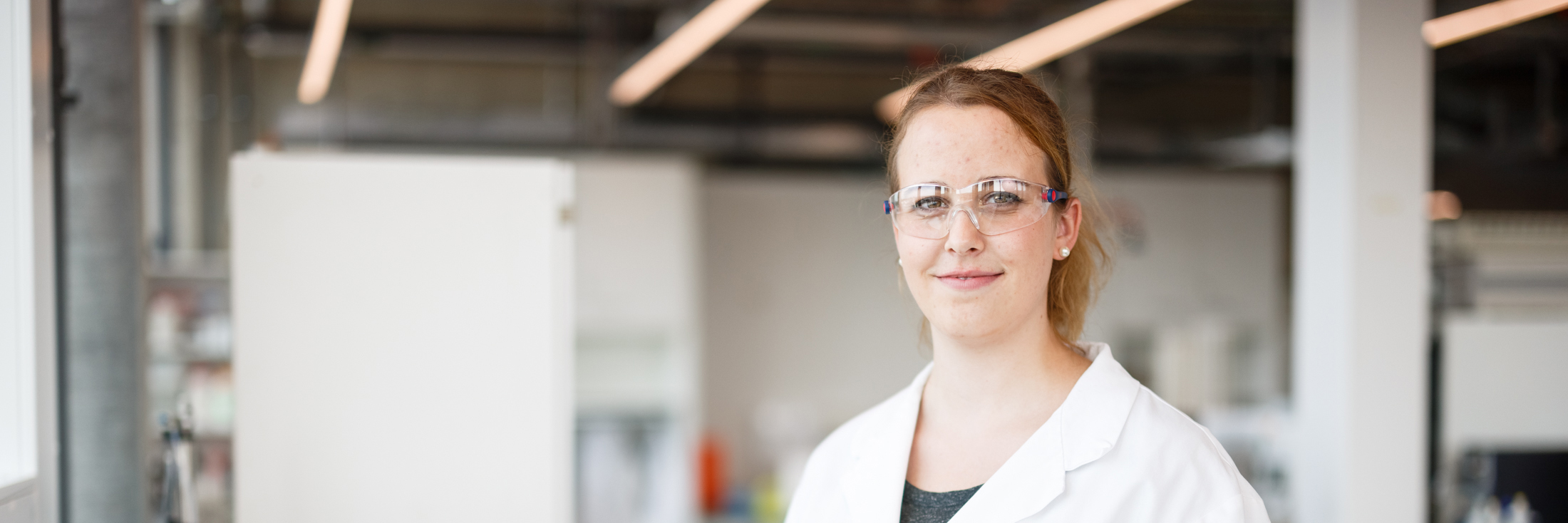Bioanalytics
Become an expert in Bioanalytics
Key data
- Degree
- Master of Science in Life Sciences
- Studying type
- Double-Degree with foreign University optional
- ECTS points
- 90
- Studying mode
- Full-time and part-time
- School days
- Monday to Friday
- Teaching language
- English
- Place
- Muttenz (Basel-Land)
- Stay abroad
- optional
- Application fee
- CHF 200
The deadline for applications for the autumn semester is 30 April of the relevant year and 30 November for the spring semester.
Mobile navi goes here!
Bioanalytics – Career Opportunities
The specialisation in Bioanalytics provides an excellent preparation for working in an industrial, academic or medical environment. The analysis of biomolecules such as drugs, metabolites, proteins, nucleic acids, microorganisms, etc. is gaining world-wide importance. Bioanalytics is central for product quality control and is fundamental to research and development of new products in the pharmaceutical, food and medical fields. The demand for specialists in Bioanalytics is also increasing thanks to technical advances which are opening up new analytical possibilities and strategies, e.g. in precision medicine.
Bioanalytics – Curriculum
The modules offered focus on the analysis, detection and identification of biomarkers such as small molecules, proteins, nucleic acids, and combinations thereof. The modules include cutting edge technologies e.g., in the fields of proteomics, genomics, molecular biology, microbiology and in vitro diagnostics.
Further modules can be chosen from neighbouring specializations, in particular Analytical Chemistry, Applied Cell Biology, Biotechnology and Pharmatechnology. The broad range of specialist and generic modules allows each student to create an individually tailored study programme.
Students may also take an extra semester at a foreign partner university, allowing them to gain an additional degree.
The MSc concludes with an eight month thesis, usually conducted on site at one of the industrial partners in our network. Alternatively, the thesis can be carried out at any hospital or university world-wide which meets our standards. The eight month thesis forms the basis for successful employment in industry, the medical sector or in academia.
The combination of two semesters of study with the practical experience gained while doing the thesis qualify our alumni for interesting and demanding positions in research and development or doctoral studies.
Bioanalytics – Entry Requirements
The MSc in Life Sciences – Bioanalytics is especially suited for students with a BSc degree in Biochemistry, Chemistry, Biotechnology, Biology or related fields.
Graduates with an excellent Bachelor's degree are admitted directly if they:
- hold a Bachelor's degree in a related technical field from a university of applied sciences with a mark of A, B or ≥ 5 or an equivalent mark (≥ good)
- or demonstrate an equivalent background (BSc) and practical experience
- and have excellent English skills.
Prospective students who meet most but not all of the entry requirements are invited to an interview.


